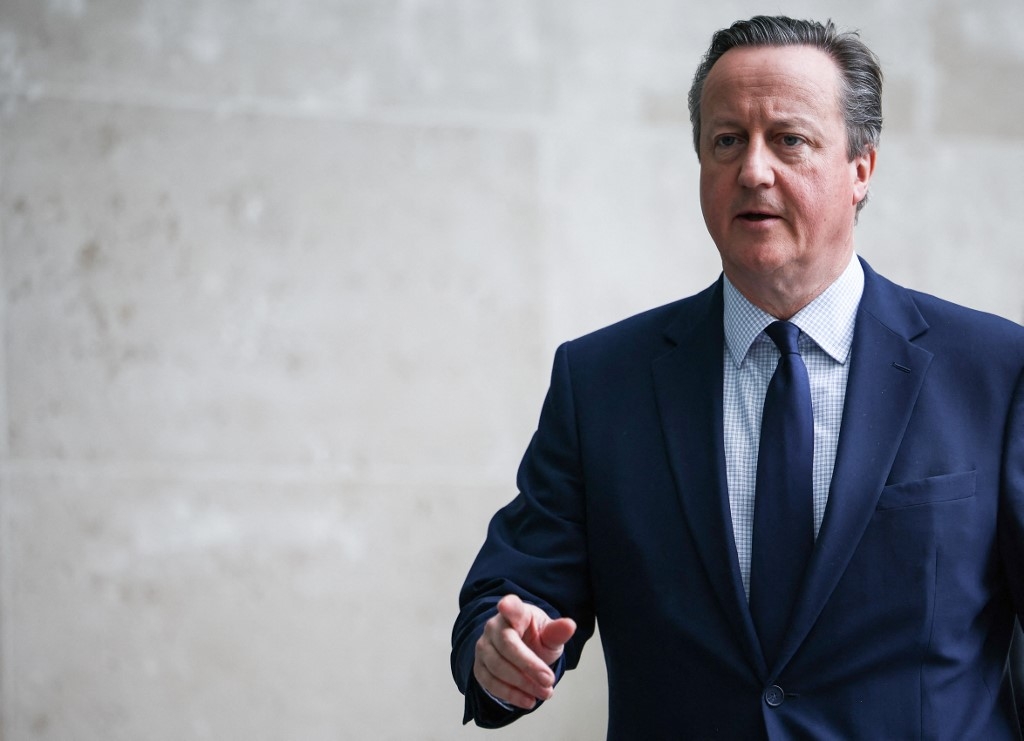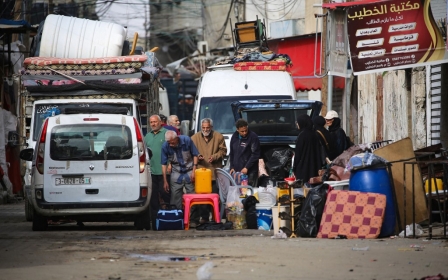UK Foreign Secretary Cameron says 'not wise' to ban arms sales to Israel

British Foreign Secretary David Cameron said it would be "not wise" for the UK to suspend arms sales to Israel, despite expressing concerns over the country's planned escalation in Rafah.
Speaking to the BBC, Cameron said he did not agree with comments made by US President Joe Biden that suggested imposing some restrictions on weapon exports if Israel attacked the city in southern Gaza, which has become a haven for Palestinians fleeing the rest of the enclave.
"The last time I was urged to do that, I didn't do that, and just a few days later there was a brutal attack by Iran on Israel ... I think it would have sent an entirely wrong message," he said, referring to a direct attack by Iran on Israel last month that left no reported casualties.
"Just to simply announce today that we will change our approach on arms exports, it would make Hamas stronger and it would make a hostage deal less likely."
Israeli Prime Minister Benjamin Netanyahu has repeatedly said he would push on with his plans to invade Rafah in order to uproot Hamas, which was responsible for an attack in Israel on 7 October that left 1,170 people dead and saw hundreds of captured Israelis and others taken to Gaza.
The Palestinian health ministry has reported that at least 34,971 Palestinians have been killed and 78,641 others wounded since Israel's war on Gaza began in October.
UN Secretary-General Antonio Guterres said on Friday that Gaza faced the danger of an "epic humanitarian disaster" if Israel launched a full-scale ground operation. The United Nations Office for the Coordination of Humanitarian Affairs (Ocha) has warned that the World Food Programme and UN aid agency Unrwa were set to run out of food for distribution in southern Gaza "by tomorrow" due to the continued closure of border crossings by Israeli forces.
In a video statement posted on X, Ocha chief Georgios Petropoulos warned that the "humanitarian situation in Gaza is in a downward spiral" and urged the "immediate entry of aid and fuel".
The French foreign ministry also called on Israel to halt its military operations in Rafah and to reopen the border crossing there to allow the passage of aid into Gaza.
In a statement posted on X, the ministry condemned the Israeli attack on Gaza's southernmost city, warning it could cause "a catastrophic situation for the civilian population of Gaza".
The ministry urged Israel to return to negotiations, "the only possible path to lead to the immediate release of hostages and obtain a lasting ceasefire".
In the US, Israel's biggest backer, mounting pressure domestically and internationally led Biden, for the first time, to raise the possibility of withholding military aid from Israel, which totals $3bn annually.
Cameron, despite denying plans to suspend arms sale, said his government could not support Israel's attack on Rafah "unless they have a plan" to protect civilians.
"We have not seen that plan so we do not support a major operation in Rafah," he told the BBC.
Middle East Eye propose une couverture et une analyse indépendantes et incomparables du Moyen-Orient, de l’Afrique du Nord et d’autres régions du monde. Pour en savoir plus sur la reprise de ce contenu et les frais qui s’appliquent, veuillez remplir ce formulaire [en anglais]. Pour en savoir plus sur MEE, cliquez ici [en anglais].




